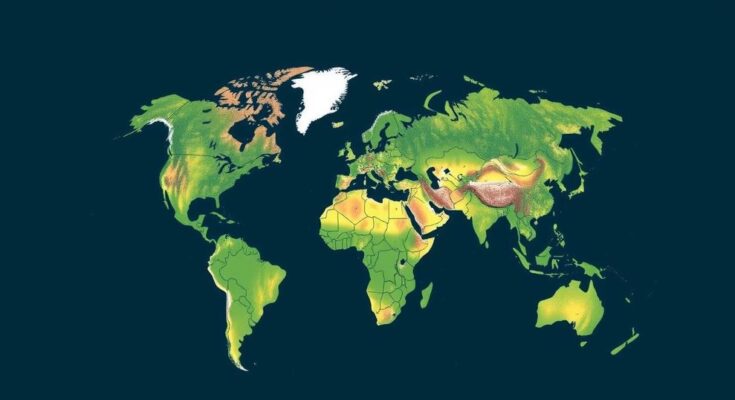The International Court of Justice is currently hearing a landmark case to clarify the legal responsibilities of nations regarding climate change, with nearly 100 countries testifying, including Vanuatu. The hearings will determine obligations related to reducing greenhouse gas emissions and addressing climate damage. Although non-binding, the ruling may impact global climate litigation and compensation claims from developing nations affected by climate changes. The proceedings will last until December 13, with an opinion expected in 2025.
The International Court of Justice (ICJ) is currently hearing a pivotal case that has the potential to define the legal duties of nations concerning climate change. The court, located in The Hague, is gathering testimonies from almost 100 countries, a process initiated by Vanuatu. This case seeks to determine the responsibilities of states to combat climate change as well as to address the damages caused by global warming. Although the ruling will not be legally binding, it may significantly influence climate lawsuits globally.
The impetus for this case traces back five years when law students in Fiji proposed seeking a legal opinion on climate change, which was subsequently adopted by Vanuatu. This specific island nation has been acutely affected by climate impacts, including a catastrophic double cyclone last year, which led to the government declaring a six-month state of emergency. Under pressure from Vanuatu and allied nations, the UN General Assembly tasked the ICJ with addressing critical climate questions regarding legal obligations for countries to mitigate carbon emissions.
Today, Vanuatu has the prominent role of presenting the first evidence during the hearings, emphasizing their frontline status in experiencing climate change. Ralph Regenvanu, Vanuatu’s special envoy, stated the urgency of clarifying international legal obligations related to climate action. The court’s deliberations will also involve input from powerful nations, including the United States and China, as well as representatives from the oil-producing nations of OPEC. The hearings are scheduled to continue until December 13, with a decision anticipated by 2025.
The case before the ICJ marks an important milestone in the ongoing global dialogue about climate change obligations and accountability. With rising temperatures and severe weather patterns affecting numerous countries, this legal inquiry aims to establish clearer definitions of state responsibilities under international law. The involvement of countries that directly suffer from climate impacts, such as Vanuatu, illustrates the pressing need for structural changes in how nations address environmental degradation. The outcome of this case could set significant legal precedents for future climate litigation and financial reparations.
In summary, the ICJ’s deliberation regarding climate change responsibilities could yield critical insights into the international legal mechanisms governing environmental protection. As almost 100 nations come together to voice their concerns, the ruling could empower vulnerable countries seeking restitution for climate-related damages. The case, underscoring the need for substantive climate action, is poised to influence future legal frameworks and negotiations surrounding climate finance and accountability.
Original Source: www.bbc.com




